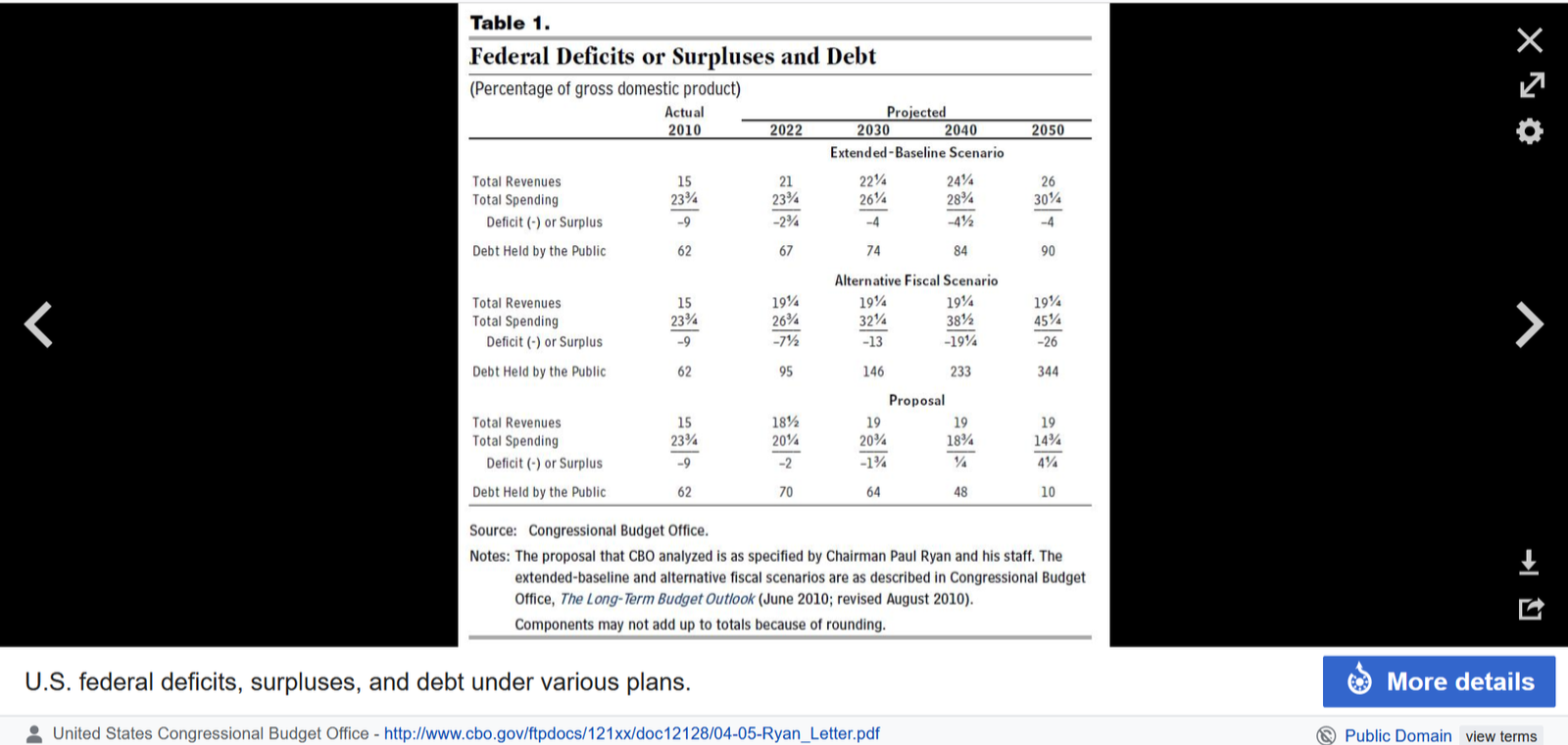October 29, 2022
Unlike Republicans of today, former House Speaker Paul Ryan used PowerPoints and pretended to believe in arithmetic. This led many centrist pundit types to say that he was a serious policy wonk.
Ezra Klein and Mark Leibovich apparently are still pushing this line. On one of Ezra’s shows this week, both warmly agreed:
“MARK LEIBOVICH: You might be challenging me, but I basically agree with you 100 percent. So I mean, I would agree. I mean, I think Paul Ryan was criticized a great deal. He was dismissed as a lightweight. I’ve been criticized over the years for taking him, I think, more seriously than many people in the media did.
“At least there was a policy framework around then.”
As some of us argued at the time, Paul Ryan desperately did not want his proposals to be taken seriously because they were a joke. Here’s the picture from the Congressional Budget Office’s analysis of his budget proposal, which Ryan directed. (This means he was telling them what to put into it.)

Note that in 2050 Ryan’s budget projected that total government spending would be 14.25 percent of GDP. At that time he was saying he wanted to leave Social Security alone. (Earlier he had pushed a proposal for privatizing the program.) The Social Security Trustees projected that Social Security in 2050 would cost just under 6.0 percent of GDP. The Congressional Budget Office projected that Ryan’s plans for Medicare and other federal health care programs would leave spending at just under 5.0 percent of GDP.
This means that Ryan’s budget left around 3.5 percent of GDP for the military and all other government programs. Since Ryan was not an advocate of big cuts from the military’s budget, which is around 3.0 percent of GDP, this left 0.5 percent of GDP for everything else in the federal budget.
This means all spending on the Justice Department, education, SNAP, infrastructure, research, the environment, and everything else in the federal budget would come to just 0.5 percent of GDP or roughly $130 billion a year in today’s economy (roughly 40 percent more than the current SNAP budget).
Ryan effectively was proposing shutting down the federal government, apart from Social Security, pared back health care programs, and the military. If Ryan was serious about this plan, he never made a big point of defending it in public. In short, Ryan was a lightweight who did not want his proposals to be taken seriously, and thankfully, most people other than centrist pundits did not.







Comments